Volvo values meeting Vietnam’s consumers
What brought you to Volvo Cars and what connection do you have with this country?
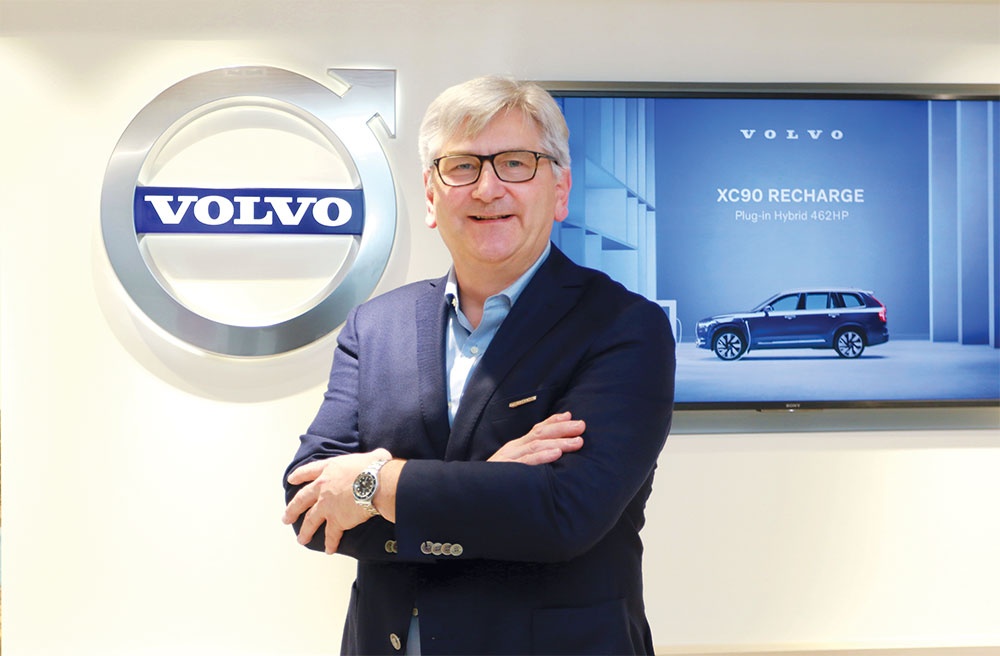 |
| Nick Connor, head of Volvo APEC |
I’ve been with Volvo Cars for a very long time, more than 27 years. I started working as a lawyer for Volvo in the United Kingdom. Working at Volvo is the best choice I’ve ever made and I just fell in love with the brand. I love what it stands for, despite initially planning to work for Volvo for only two years.
I appreciate the values that Volvo shares, such as family values, the values of safety, and environmental concern, among others. These valuable cores tie you to the brand so we have plenty of long-standing employees as well as importers and retailers.
That also brings us many loyal customers as well, because I think the brand just resonates with people. Particularly with Asian consumers, the family values that we have, the things that we stand for emerges as the most considerable value for our customers.
I’m delighted to be back in Vietnam. I came here 10 years ago on holiday with my family and fell in love with the place, and we’ve been back many times since. But this is my first time here professionally.
How do you envisage the growth of Vietnam’s vehicle market and Volvo’s progression in particular?
I would say the total market is expanding substantially this year. Regarding the performance of Volvo cars, our market share will be around 14-15 per cent of the premium-served market.
However, a global supply constraint is one of the emerging problems, and we do not have enough automobiles to fulfill the global demand.
On the other hand, we’ve been prioritising automobile demand for Vietnam’s market as the country boasts immense potential, and it’s a really key growing area for us.
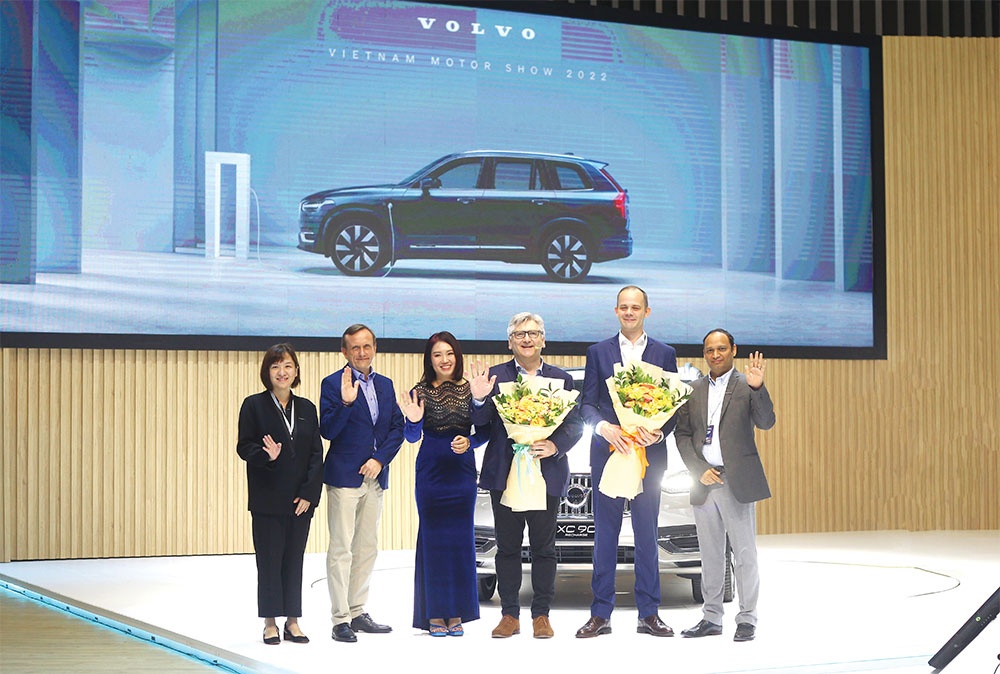 |
Many companies were hit hard by the COVID-19 pandemic. How did Volvo navigate the tough times?
The pandemic caused us a great deal of difficulties, which halted manufacturing worldwide. As I’m sure most people are aware, there has been a scarcity of semiconductors and, as a result, we have not had as many automobiles as we had anticipated.
That said, the shortage of cars has enabled us and our retailers to maintain profitability and margins on new cars. We’ve focused on available supply to those markets where we see long-term growth and Vietnam is one of those so, despite the shortage of supply, we’ve still been able to grow there.
Our brand values are prominent in Vietnam, and that is because our safety credentials and family values resonate with the Vietnamese customers. We have world-class air filtration systems in our cars just as one example, which I think people suddenly recognise the advantage of those technologies in our products.
In general, people do not always want to flaunt their wealth in times of volatility, so I believe that our brand is well-suited.
What was the highlight for Volvo at this year’s Vietnam Motor show?
At the Vietnam Motor Show 2022, our booth stood out from the crowd since we displayed five quality automobiles, all without an internal combustion engine. Moreover, our fleet consists entirely of mild and plug-in hybrid vehicles.
Our flagship model, the XC90, is a 7-seat plug-in hybrid with 462 horsepower and exceptional performance and fuel efficiency compared to anything else on the market. It makes us unique among manufacturers in displaying only hybrid cars at our booth. It is quite a distinctive automobile in this industry.
I think attendees would be very impressed by the cars that we introduced to the show, particularly the safety and environmental aspects that we demonstrate. In addition, the products look fantastic. We only offer the very top of the range ultimate variants, with super luxurious interiors and exteriors. I think they’d be very impressed by the quality of the cars – both the materials fit the finish and the look of the car, so we’re very excited by how consumers will respond to these moving forward.
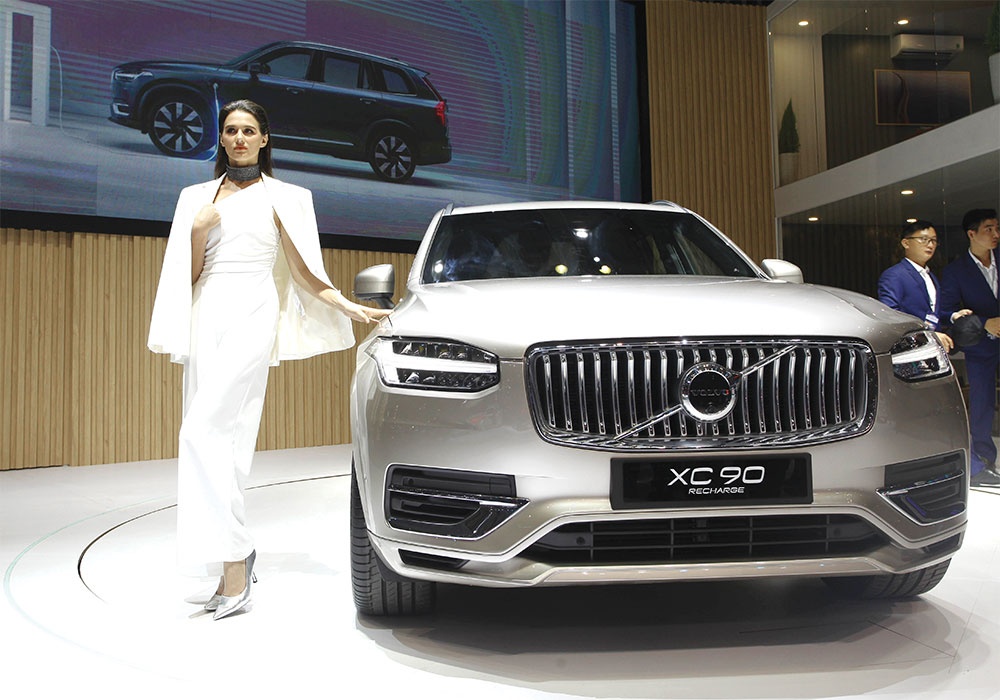 |
Vietnam has declared its ambition to achieve a net-zero emissions target by 2050. How can car manufacturers like Volvo contribute to Vietnam’s sustainability development?
At last year’s COP26 conference, Volvo Cars also unveiled its plan to be a pure electric carmaker by 2030, which was one of the most ambitious in the industry.
Volvo Cars also has its own climate action targets that go above and beyond the commitments in today’s declaration. Already by 2025, our company expects more than half of our global sales to consist of fully electric cars (EVs).
We’ve made rapid progress towards being a more environmentally responsible carmaker. To be clear, we’ve always considered long-held ecological responsibility paramount. In my opinion, we are now through a period becoming a climate neutral company.
What are your long-term goals for the Vietnamese market, and is there any possibility that Volvo EVs will soon be available in Vietnam?
We have our plug-in hybrids now in Vietnam. Our EVs are next in line for our business agenda in the Vietnamese market. The XC40 will serve as our first vehicle of examination. Next, we’ll unveil the EX90, a huge 7-seat all-electric SUV, and the C40. In a very short length of time, three entirely electric automobiles will be available.
After that, all of our brand-new automobiles will be battery-operated from the ground up. I really hope that we can speed up the electrification of our whole model selection right here in Vietnam.
So, yes, I believe we can achieve the goal of having half of EVs worldwide by 2025. In my opinion, we are capable of even greater speed than that if we set our sights high enough.
What is the most challenging obstacle for an international manufacturer introducing EVs in emerging economies like Vietnam?
The most significant obstacle here is definitely the country’s infrastructure. We have introduced our products to countries with less-than-ideal infrastructure, such as Thailand.
And what we’ve seen is that there are early adopters in the market who really want to have a bed and if they’ve got a landed property or they’re able to install a charger at home – that goes a long way to helping them move towards a better vehicle.
I believe that notwithstanding the infrastructure, people will adopt EVs early. Now, of course, what we would like to see is better charging infrastructure. I think the commercial environment here is favourable for battery EVs but not so good for plug-in hybrids. That will encourage more customers and producers in the market.
But ultimately, we would say to the government and to commercial operators that a good charging infrastructure is of utmost importance, which can enable quick and simple charging at a reasonable cost. That’s the only way that you really get momentum for EVs. It is more crucial than any type of tax incentives. I think it’s better to have the infrastructure rather than tax incentives because then it becomes more sustainable, as incentives can always be withdrawn.
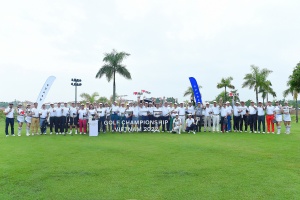 | Volvo Golf Championship Vietnam 2022 aids talent development Volvo Vietnam held the Volvo Golf Championship 2022 in Ho Chi Minh City and Hanoi, with nearly 600 golfers from across the country competing on two courses, Long Thanh (Dong Nai province) and Sky Lake (Hanoi). |
 | Volvo Car Vietnam launches new generation cars at Vietnam Motorshow 2022 At the Saigon Exhibition and Convention Center (SECC), Volvo Car Vietnam launched a completely new line-up of cars for the Vietnamese market. This includes seven exciting new hybrid & mild-hybrid models. |
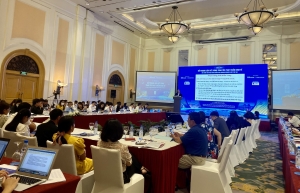 | Closing regional links and increasing agricultural values Businesses and experts look forward to the regional supply chain links between producers and consumers, which are deemed crucial to foster the value of Vietnamese agricultural products. |
What the stars mean:
★ Poor ★ ★ Promising ★★★ Good ★★★★ Very good ★★★★★ Exceptional
Related Contents
Latest News
More News
- Ho Chi Minh City launches plan for innovation and digital transformation (February 25, 2026 | 09:00)
- Vietnam sets ambitious dairy growth targets (February 24, 2026 | 18:00)
- Masan Consumer names new deputy CEO to drive foods and beverages growth (February 23, 2026 | 20:52)
- Myriad risks ahead, but ones Vietnam can confront (February 20, 2026 | 15:02)
- Vietnam making the leap into AI and semiconductors (February 20, 2026 | 09:37)
- Funding must be activated for semiconductor success (February 20, 2026 | 09:20)
- Resilience as new benchmark for smarter infrastructure (February 19, 2026 | 20:35)
- A golden time to shine within ASEAN (February 19, 2026 | 20:22)
- Vietnam’s pivotal year for advancing sustainability (February 19, 2026 | 08:44)
- Strengthening the core role of industry and trade (February 19, 2026 | 08:35)

 Tag:
Tag:




















 Mobile Version
Mobile Version